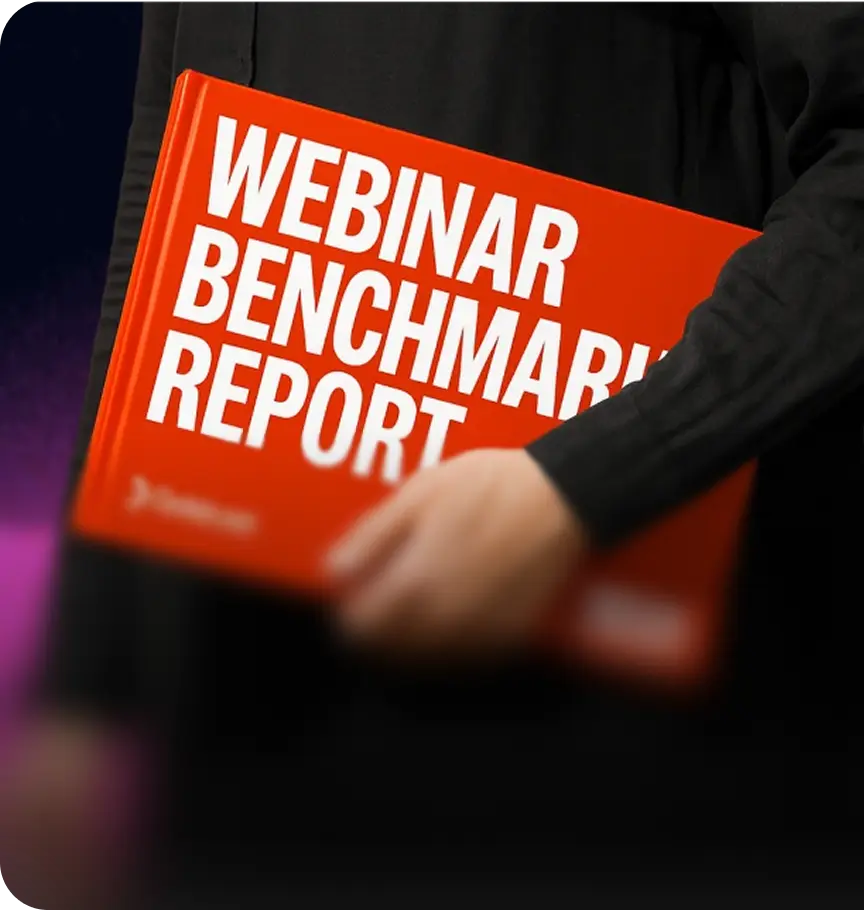Just Do It: Consistency is the Mindshare Marketing Advantage No One Talks About

Table of Contents
- Why does consistency matter more than novelty in B2B marketing?
- What’s the science behind why repetition works?
- What happens when B2B brands fail to stay consistent?
- How can brands stay consistent without becoming redundant?
- What’s the right balance between too much and too little?
- How does consistency strengthen B2B mindshare specifically?
- How do consistency, video, and resonance connect?
- ▼ Frequently Asked Questions
Maximize Your Marketing ROI
Join 10,000 other marketers already getting the best tips on running engaging events that boost pipeline and create raving fans.
Why does consistency matter more than novelty in B2B marketing?
I used to underestimate consistency. "Flashy and new" always sounds much sexier than "steady and stable," am I right?
But then I learned a hard lesson throughout my career in marketing: Being memorable isn't about novelty as much as it’s about repetition.
Consider this: Nike’s infamous "Just Do It" line launched in 1988 to much internal debate. Leaders in the company thought it might be a throwaway tagline they could remove after the campaign ended; Nike's creative team wasn't convinced it was necessary at all.
Yet, the simple three-word phrase resonated with audiences, and Nike began consistently putting it out there on all of their marketing materials. Today, you'd be hard-pressed to find a Nike ad without those words.
In fact, "Just Do It" has become a rallying cry all on its own:
There are two lessons we can take from Nike:
- Coming up with a values-aligned brand identity; and then
- Reinforcing that brand identity over and over
What’s the science behind why repetition works?
Ready for the science behind why repetition works?
It's called the "Mere Exposure Effect," and it was discovered by Gusav Fechner in the late 1800s.
In a nutshell: Our brains are designed to develop preferences for things that we're familiar with.
This is (part of the reason) why we become friends with people we cross paths with regularly, whether through school or work.
We're hardwired to be cautious of new things and people, but familiarity brings down those defenses and increases our positive feelings.
Consistent messaging plays on the Mere Exposure Effect.
Over time, consistency engrains you in people's minds as familiar, trustworthy, and positive.
What happens when B2B brands fail to stay consistent?
I continue to see brands, especially in the B2B sphere, struggle to put out consistent content. Maybe their messages keep changing every month, and I can't keep up. Or the brand personalities are swinging all over the place, from formal to way too casual.
When this happens, people forget your brand.
They can't nail down who you are, or depend on you, and they move on. No one wants to spend their finite mental capacity trying to sort through what you're serving up.
In contrast, consistent branding increases revenue by 23% because customers trust familiarity. As you're consistent with your messaging, people begin to trust you and feel connected to you.
How can brands stay consistent without becoming redundant?
While you need to be repetitive, you don't want to be redundant.
That would be pretty boring. Be creative! Vary the formats you use.
At Goldcast, we use a mix of:
- customer stories
- thought leadership
- explainer videos
- social proof
and so on...
As long as we're holding true to our core messages and the way we communicate, variety ensures that things feel fresh to our audience.
Say the same thing, but a hundred different ways.
What’s the right balance between too much and too little?
It's also important to strike a healthy balance between over-posting and not posting enough. We've all seen those brands who always have a hot take about everything and won't stop spamming their messages in every forum. People don't respond well to that, either.
My advice?
Embrace steady, rhythmic content production. In other words, quality messages, consistently delivered.
Mindshare marketing is a marathon, never a sprint.
In a world where attention fades fast, consistency boosts the chances that you're the brand buyers recall without hesitation, when the time comes.
How does consistency strengthen B2B mindshare specifically?
Mindshare in B2B is about being the brand decision-makers think of first when they’re ready to buy. Consistency strengthens this by:
- Reinforcing expertise across every channel
- Aligning leadership, sales, and marketing under one voice
- Reducing friction in the buyer’s journey by building familiarity
Flashy one-off campaigns may win quick attention, but consistent messaging builds the trust needed to convert that attention into long-term brand equity.
How do consistency, video, and resonance connect?
Consistency doesn’t live in a silo. It ties directly into other elements of mindshare marketing.
Video-first strategies win initial attention.
Resonance ensures content connects emotionally.
But without consistency, those wins fade.
When brands layer consistency onto video-first storytelling, they create a compound effect: memorable content delivered repeatedly, in a way that audiences come to expect—and trust.
PS: I hope you can see that everything we've talked about in this series is related! The video-first approach helps you win attention, but you've got to have resonance at the heart of your video content for it to work. Then, all that's left to do is be consistent and keep building Mindshare.
Create Consistently via Content Lab
Quickly and easily repurpose your video recordings into video-first social posts, multimodal blogs, audiograms, and more.
▼ Frequently Asked Questions
Why is consistency more important than creativity in B2B marketing?
It’s not about choosing one over the other. Creativity sparks interest, but consistency sustains it. Without repetition, even the most creative campaigns are forgotten.
How do you maintain consistency with multiple stakeholders involved?
Create clear brand guidelines that define voice, tone, messaging pillars, and visual identity. Ensure every team member—from leadership to sales—aligns with these standards.
Won’t audiences get bored if we repeat the same messages?
Not if you balance consistency with variety. Keep the core story steady but refresh the delivery formats—video, blogs, social posts, customer testimonials—to keep things engaging.
What metrics prove the value of consistency?
Look at brand recall surveys, engagement rates over time, pipeline attribution, and share of voice. Revenue lift is often the ultimate proof, with studies showing up to 23% increases from consistent branding.
How long does it take for consistency to pay off?
Think long-term. Building mindshare isn’t a quarterly campaign—it’s a sustained effort over months and years. The payoff is greater trust, loyalty, and stronger brand equity.
How does inconsistency hurt B2B sales cycles?
Inconsistency erodes trust. If your brand voice, visuals, or promises keep shifting, buyers may question your reliability. Trust is foundational in B2B sales, and consistency is how you earn it.
Transform Your Video Marketing with AI
Stay In Touch
Platform
Resources
© 2026 Copyright Goldcast, Inc. All rights reserved.





 Upcoming Events
Upcoming Events Event Series
Event Series On-Demand Events
On-Demand Events

